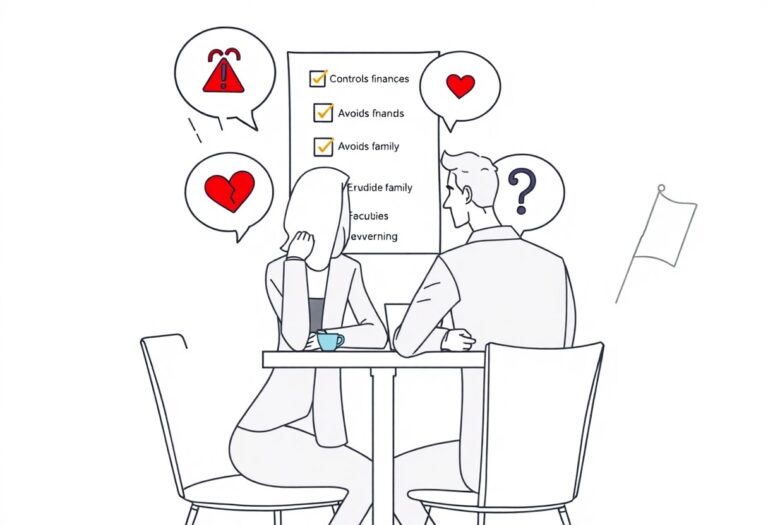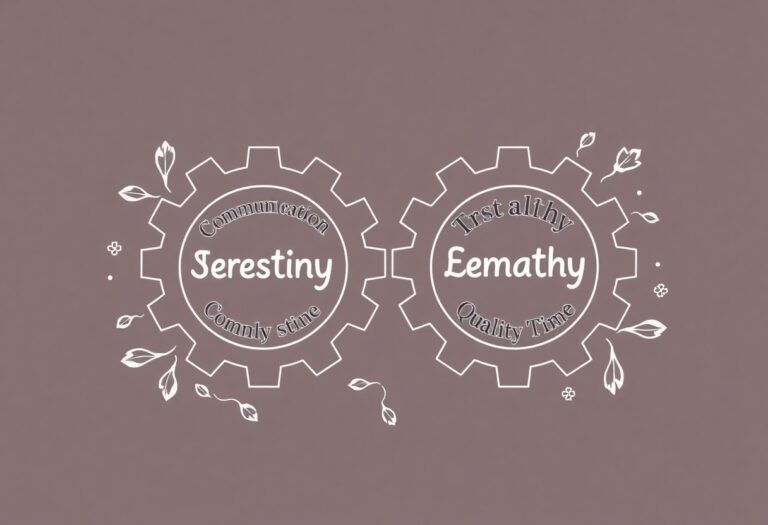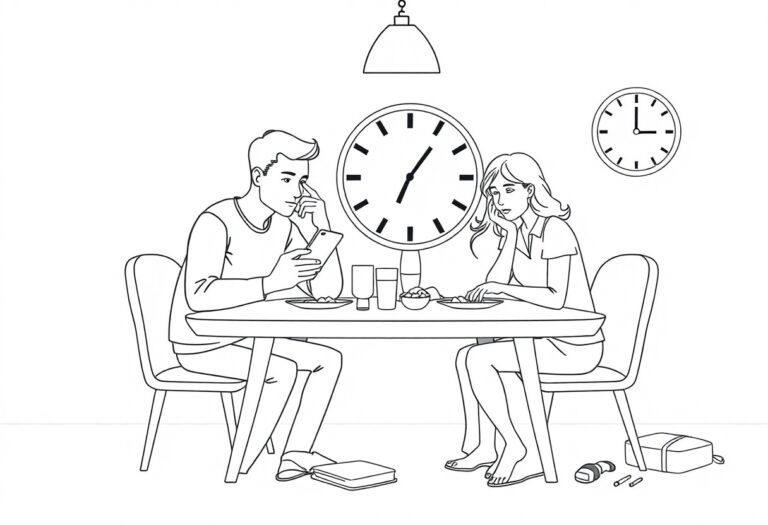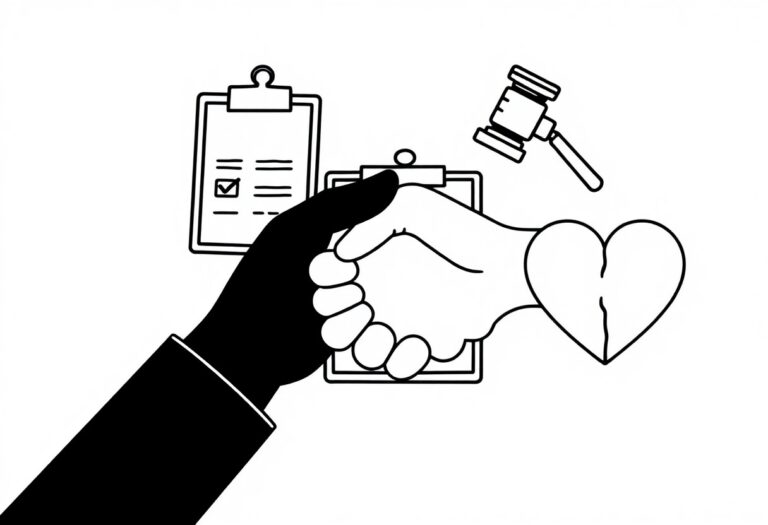Discover Why Mental Health is Crucial in Relationships
There’s a significant link between mental health and the success of your relationships. When you prioritise your well-being, you can foster deeper connections, enhance communication, and navigate conflicts more effectively. Conversely, neglecting mental health can result in misunderstanding, resentment, and even the breakdown of relationships. Understanding the impact of your mental state allows you to build a supportive environment where both you and your partner can thrive, ultimately leading to more fulfilling and resilient connections.
Key Takeaways:
- Strong mental health enhances communication between partners.
- Emotional well-being fosters empathy and understanding.
- Healthy relationships can positively impact individual mental health.
- Addressing mental health issues together strengthens bonds.
- Support systems within relationships can aid in coping with stress.

Understanding Mental Health
Mental health encompasses your emotional, psychological, and social well-being, profoundly affecting how you think, feel, and act. It influences your ability to handle stress, relate to others, and make decisions. Recognising its role in your life fosters resilience and improves interpersonal connections, allowing you to navigate relationships with greater ease and understanding.
Definition and Importance
Mental health refers to your cognitive and emotional functioning, impacting your everyday life and relationships. Given that brain health is equally as vital as physical health, prioritising mental wellness can lead to improved social interactions, better communication, and enhanced overall quality of life.
Common Mental Health Issues
Issues such as anxiety disorders, depression, and bipolar disorder are prevalent and can profoundly affect relationships. These challenges can manifest as mood swings, persistent sadness, or overwhelming fear, straining your connection with others and fostering misunderstandings.
Anxiety disorders, for instance, affect approximately 1 in 6 people in the UK, often resulting in avoidance behaviours that might distance you from loved ones. Depression, impacting around 1 in 10 adults, may lead to withdrawal and decreased interest in activities once enjoyed together. Bipolar disorder, characterised by extreme mood fluctuations, can create instability that challenges relational dynamics. Understanding these issues is critical in fostering a supportive environment, promoting healing, and strengthening bonds.
The Impact of Mental Health on Relationships
Your mental health significantly influences the dynamics of your relationships. Mental health issues, such as anxiety and depression, can lead to misunderstandings, reduced intimacy, and conflict. Partners may struggle to connect emotionally when one is overwhelmed by their mental health challenges. The impact is profound; a study revealed that couples where one partner experiences mental health difficulties are at a higher risk of separation or divorce, underscoring the need for mutual support and understanding.
Emotional Connection
Building a strong emotional connection relies heavily on mental well-being. When you feel secure in your mental health, you are more likely to express vulnerability and foster intimacy. This openness enables deeper connections, allowing partners to share their thoughts and feelings authentically. Conversely, unresolved mental health issues can create barriers, leading to emotional distance and misunderstandings between you and your partner.
Communication Barriers
Mental health can hinder effective communication in relationships, often stemming from feelings of inadequacy, anxiety, or anger. These barriers manifest as misinterpretations or avoidance of difficult conversations, preventing you from addressing underlying issues. As a result, relationships may become stagnant or fraught with tension, making it crucial to recognise and tackle these challenges head-on.
Communication barriers not only create distance but can also exacerbate existing mental health conditions. For example, if you find it challenging to express your feelings due to anxiety, your partner may feel neglected or confused. Research indicates that over 70% of couples cite poor communication as a primary factor in relationship dissatisfaction. Ensuring that both partners are committed to open dialogue allows for a healthy exchange of thoughts and emotions, fostering a strong foundation built on trust and understanding.
Recognising Signs of Mental Health Struggles
Identifying mental health struggles in yourself or a partner is imperative for fostering a healthy relationship. Subtle changes in behaviour and emotional state can serve as red flags indicating that support may be needed. From fluctuations in daily routines to shifts in mood, being aware of these signs enables proactive conversations and interventions that may help to restore balance in the relationship.
Behavioural Indicators
Behavioural changes are often among the first signs that something may be amiss. You might notice a partner withdrawing from social activities, neglecting self-care, or exhibiting increased irritability. These behaviours can disrupt your bond and create misunderstandings, signalling a need for open dialogue. If you find yourself or your partner increasingly avoiding interaction, it’s vital to address these shifts without delay.
Emotional Warnings
Emotional warning signs can manifest as overwhelming feelings of sadness, anxiety, or anger. You may encounter persistent mood swings that disrupt daily life and decision-making. These symptoms often stem from deeper issues and can hinder your ability to communicate effectively with your partner. Being attuned to these emotional changes can highlight the importance of seeking support, both individually and as a couple.
Recognising emotional warnings involves paying attention to both your own feelings and those of your partner. For instance, you may notice a decline in enthusiasm for activities once enjoyed, or an increasing tendency to feel overwhelmed by minor setbacks. These emotional fluctuations can indicate underlying struggles that, if left unaddressed, may exacerbate tension within the relationship. Engaging in honest discussions about feelings and seeking professional guidance can provide a pathway to understanding and healing.
Supporting a Partner with Mental Health Challenges
Understanding how to support a partner dealing with mental health challenges can significantly strengthen your relationship. It involves recognising their struggles while offering compassion and encouragement. By actively engaging in their healing journey and being present, you can foster a safer emotional environment where they feel valued and understood.
Open Communication
Engaging in open communication is paramount. Create a non-judgemental space where your partner feels safe to express their feelings and concerns. Using active listening techniques, such as summarising their thoughts, can help demonstrate your commitment to understanding their perspective and fosters deeper emotional connections.
Seeking Professional Help
Encouraging your partner to seek professional help can be a transformative step towards their recovery. Support them in finding a suitable therapist or mental health professional, and consider offering to accompany them to appointments if they desire. This shared experience can alleviate some anxiety they may face.
Professional help can provide invaluable resources such as therapy, support groups, and medication management, which significantly enhance coping strategies. Studies have shown that partners who engage with therapists together often report improved communication and satisfaction in their relationships. By emphasising the importance of professional guidance, you empower your partner to take proactive steps towards improved mental health, which ultimately benefits both of you. This commitment to their wellbeing not only signifies your support but strengthens your bond through shared vulnerability and healing.
Building Resilience in Relationships
Resilience in relationships allows you and your partner to navigate challenges together, fostering a deeper emotional connection. By understanding each other’s triggers and developing a strong support system, both parties can cultivate adaptability. This involves open communication about vulnerabilities and learning from setbacks. Practising resilience empowers you to face difficulties instead of shying away from them, creating a stable foundation for enduring partnerships.
Establishing Trust
Trust forms the bedrock of any resilient relationship. Being transparent with your feelings and intentions reassures your partner that you are invested in their wellbeing. Consistently showing reliability through your actions strengthens this trust, allowing both of you to feel safe in sharing vulnerabilities. You’ll find that the more you practise honesty and openness, the deeper your trust will grow, fostering an environment where both partners can flourish.
Encouraging Positive Coping Mechanisms
Fostering positive coping mechanisms in your relationship can enhance your resilience. Engaging in activities that promote mental wellbeing, such as mindfulness, exercise, and creative outlets, allows both you and your partner to handle stress effectively. These strategies not only improve individual mental health but also strengthen the partnership. Sharing experiences like yoga sessions or art classes can further deepen your bond and create shared moments of joy.
Integrating positive coping mechanisms into your routine can significantly enhance both your and your partner’s mental resilience. Consider establishing a weekly ‘wellness night’ where you both engage in stress-reducing activities, such as cooking healthy meals together or practicing relaxation techniques. Research indicates that couples who partake in shared mindfulness activities report higher relationship satisfaction. Such initiatives not only provide tools for individual stress management but also reinforce your emotional connection, creating a supportive environment to face life’s challenges as a united front.
The Role of Self-Care in Relationships
Importance for Individuals
Self-care significantly impacts your mental health, directly influencing how you engage with your partner. Prioritising activities that promote your well-being, such as hobbies or rest, nurtures your emotional state. This, in turn, equips you with greater patience and understanding, enabling you to approach challenges within your relationship more effectively. Creating a healthy balance between your needs and those of your partner fosters a more stable environment for both of you.
Benefits for Couples
Couples who practise self-care individually often experience heightened emotional intimacy. When you both engage in self-care, it reduces stress and increases overall relationship satisfaction. Each partner’s well-being positively influences the relationship dynamic, leading to more open communication and shared joy. By supporting each other’s self-care routines, you create a culture of respect and care that strengthens your bond.
Research supports that couples who prioritise individual self-care report a 20% increase in relationship satisfaction. By engaging in self-care, you both reduce the potential for conflicts stemming from unmet personal needs. Shared activities, such as exercising together or attending workshops, not only enhance your physical health but also promote your emotional connection. Regularly focusing on personal growth helps in transforming challenges into collaborative solutions, fostering resilience and partnership.
Conclusion
Upon reflecting, it becomes evident that prioritising your mental health significantly impacts the quality of your relationships. By nurturing your emotional well-being, you enhance your capacity for empathy, communication, and understanding. This fosters deeper connections and resilience in the face of challenges. Recognising the link between your mental state and relationship dynamics allows you to create a more fulfilling and supportive environment, benefiting both you and those around you.
FAQ
Q: Why is mental health important in relationships?
A: Mental health plays a significant role in relationships as it affects communication, emotional connection, and overall satisfaction. When both partners prioritise their mental well-being, they are more likely to foster a supportive environment, leading to stronger bonds and healthier interactions.
Q: How can poor mental health impact a relationship?
A: Poor mental health can lead to misunderstandings, increased conflicts, and emotional distance. It may cause individuals to withdraw or exhibit negative behaviours, ultimately harming trust and intimacy. This can create a cycle of resentment and stress between partners.
Q: What are some signs that mental health issues are affecting a relationship?
A: Signs include frequent arguments, lack of communication, avoidance of each other, emotional unavailability, or changes in intimacy. Additionally, one partner may exhibit signs of anxiety, depression, or irritability, which can strain the relationship.
Q: How can couples support each other’s mental health?
A: Couples can support each other by fostering open communication, actively listening, and being empathetic. Encouraging each other to seek professional help when necessary and engaging in healthy activities together can also strengthen their emotional connection and resilience.
Q: What role does professional help play in maintaining mental health in relationships?
A: Professional help, such as therapy or counselling, can provide couples with the tools and strategies to improve their mental health. It can help them address underlying issues, enhance communication skills, and develop coping mechanisms, leading to a healthier relationship dynamic.






